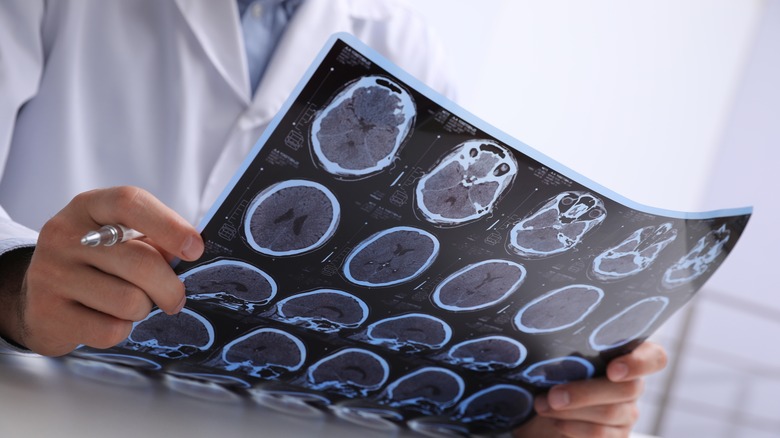Alzheimer's Drug Lecanemab Shows Promising Results In Slowing Disease
New research published yesterday in The New England Journal of Medicine suggests that lecanemab, an antibody to the substance that accumulates in the brain leading to Alzheimer's Disease, may have success in treating — or at least slowing — the ruthless disease's progression. The study examined a group of early-stage Alzheimer's patients ranging from 50 to 90 years old: half received lecanemab, and half received a placebo. After 18 months of taking the drug, the variable group showed "moderately less decline on measures of cognition and function," even with the presence of comorbidities such as diabetes, kidney or heart disease, the use of blood thinners, or diabetes and obesity.
The results indicate that an Alzheimer's patient's risk of progressing to the disease's next stage lowers by 31% (via Biogen, an investor in the pharmaceutical's development), and that even breakthrough progression is significantly slowed: A patient taking lecanemab took just over two years to reach the same level of progression as one not taking lecanemab (meaning no treatment at all). Wide-spread application of the drug could mean less strain on caregivers, a prolonged early-disease stage where memory and cognitive impact is lesser, and an overall improved quality and duration of life.
Cognitive decay is a spectrum
People do not go to sleep cognitively healthy and wake up the next morning with Alzheimer's Disease. The affliction falls more of a continuum, as the Alzheimer's Organization explains. There are five distinctive stages: preclinical, mild cognitive impairment, mild dementia, moderate dementia, and severe dementia. In the first stage, the disease's victim doesn't look like an Alzheimer's patient; they may still be young, only in their 50s or 60s, go to work, carry on normal conversations and relationships, and remember details about their own and their loved ones' identities. The changes right now are purely biological ones, culminating stealthily in the brain, but by the third stage, impact on everyday activity is starting, and by the last — brain damage is so severe that the patients, usually nonverbal or close to it, are bed-bound and require 'round-the-clock care.
One American develops Alzheimer's Disease every minute, says the BrightFocus Alzheimer's Disease Research Foundation, and studies have identified several risk factors for Alzheimer's. Currently, there is only one authority-approved drug approved for Alzheimer's treatment, according to the National Institute on Aging.

